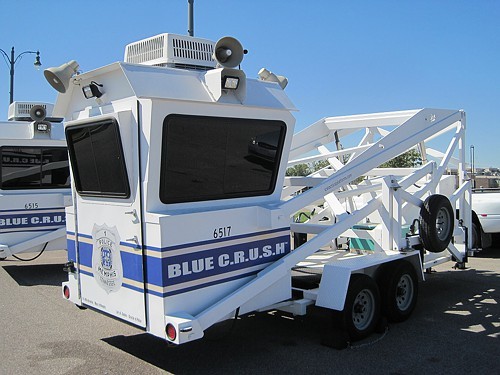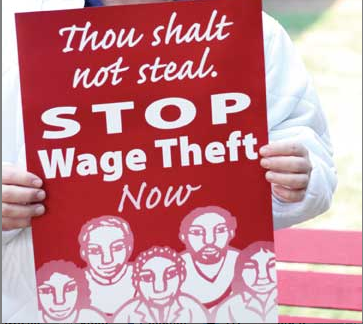“You cannot cut your way to prosperity.” — Memphis Housing and Community Development Director Robert Lipscomb.
“Our high property taxes are one reason people are leaving our city.” — Memphis City Councilman Jim Strickland.
These are the two main positions on the budget talks that will play out over the next several weeks. Keep them in mind and you will miss many a pearl and many a pain but you will “get it” for the most part.
Lipscomb is right. You can’t do nothing and let Raleigh, Whitehaven, downtown, Midtown, the fairgrounds, Frayser, or Whitehaven deteriorate. You have to build on what’s there, give comfort to the community groups and residents who stayed, nurture the anchors, connect the dots, tear down the blight or build something better.
Strickland is right. You can’t raise Memphis property taxes that are already the highest in the state and lower than the surrounding suburbs that are growing at its expense. You have to turn the tide, hold the line, cut the fat, make the tough cuts in the sensitive areas. People of means will make a flight to quality and vote with their taillights.
Lipscomb is wrong. You can’t save the malls. In the era of online shopping, even Wolfchase Galleria, Collierville’s Carriage Crossing, and Oak Court Mall in East Memphis are fighting for crowds and business. You can’t say yes to every council member and neighborhood group with a sad story in a city that is full of them. You can’t say yes to a parking garage in Overton Square without saying yes to a parking garage in Cooper-Young, yes to Madison Avenue in Midtown without saying yes to Elvis Presley Boulevard in Whitehaven and Austin Peay Highway in Raleigh.
Strickland is wrong. The overall tax burden in Tennessee is one of the lowest in the nation because there is no income tax. Memphis property taxes are high but valuations are low. The property tax disproportionately hurts homeowners but the 9.25 percent sales tax disproportionately hurts poor people.
Lipscomb is right. If basic services decline there will be more flight. Public investments can be an incentive to private investments. See Uptown, or AutoZone Park or Bass Pro and the Pyramid.
Strickland is right. Public investments can be wasteful. There is no guarantee that private investors will appear, or that they will deliver the goods if they do appear. AutoZone Park is too big, Beale Street Landing is behind schedule, over budget, and even its defenders are criticizing its appearance. In the fourth month of the year it is supposed to open, Bass Pro is the quietest $200 million game-changer you ever saw, showing all the urgency of a man fishing on a lazy summer afternoon, making barely a ripple much less a splash.
And Mayor A C Wharton is right. As he said in his budget presentation Tuesday, “Sixty cents of every dollar the administration spends is for public safety, and three out of every four general fund employees works in public safety.”
There are 3,032 employees in police services and 1,830 in fire services, for a total of 4,862 of the city’s 6,290 employees. Add another 2,000 employees of the Shelby County Sheriff’s Office, and that makes 6,862 people with salaries, benefits, and pensions in the broad category of “public safety” which is not exactly accurate when you’re talking about, say, secretaries, but very effective when you’re defending your budget to the city council and the county commission. You want to keep criminals off the streets and knock down house fires and rescue people from flooded homes and yet you say you want to cut budgets? Huh? Are you crazy? How dare you!
When I read or hear these public safety numbers I flash to two mental pictures: the daily emergency preparedness briefings for the Great Memphis Flood of 2011 and the overwhelming police response to the Ku Klux Klan rally downtown three weeks ago.
As it turned out, both non-events did not live up to their hype. Both mobilized the forces of public safety to prepare for the worst and put them on display in a sort of trade show for law enforcement. So many mobile command buses, amphibious vehicles, SUVs, Humvees, motorcycles, horses, patrol cars, chief cars, SWAT teams, weapons, shields, vests, computers, GPS systems, radios, laptops, smart phones, satellite trucks, all of it state-of-the-art or close to it because firepower, hardware, and communications technology keep getting bigger and better or smaller and better or faster and better or more powerful and better and who wants last year’s model anyway when the guys on the other side of the mall or the law have this year’s? Especially if you’re the one getting mugged or robbed or your house is flooded or burning. Plus salaries and pensions and overtime. To protect a bigger coverage area while billing it to a smaller tax-paying population.
To summarize:
Can’t close schools, they’re the lifeblood of communities and our children are our future.
Can’t let malls close, they’re the lifeblood of our communities and as the mall goes so goes the neighborhood and besides it’s already in the budget a year or two from now.
Can’t cut public safety because it’s public safety, stupid.
Welcome to another budget season.

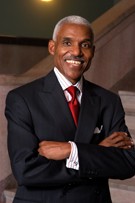
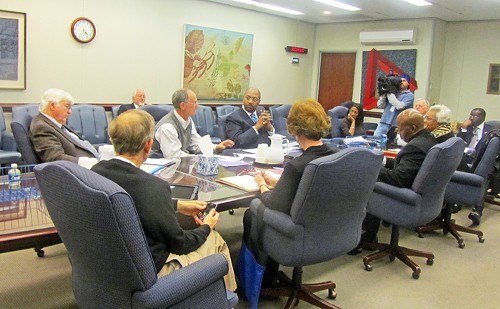
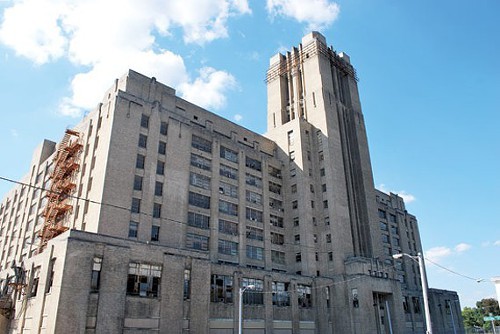
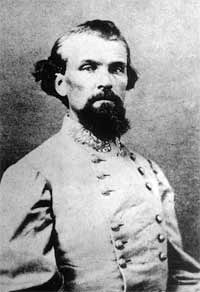
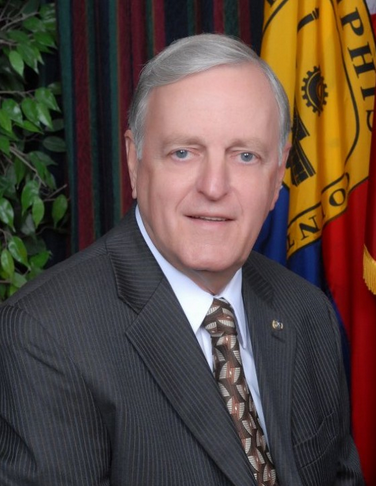
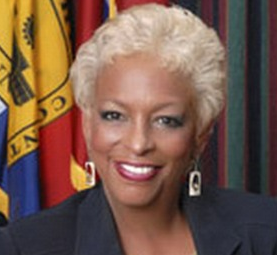
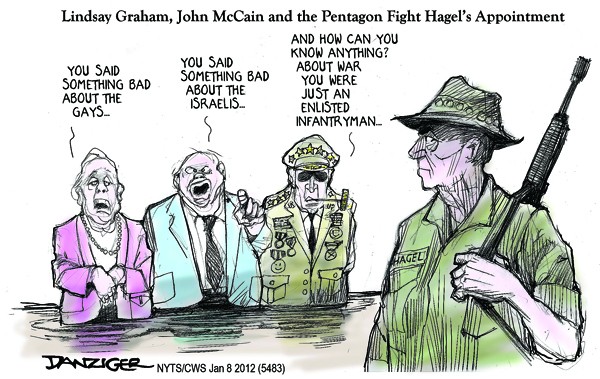 Danziger
Danziger 